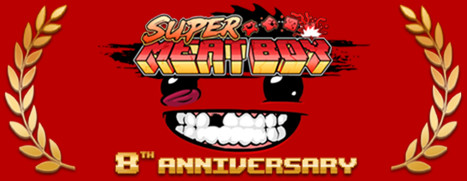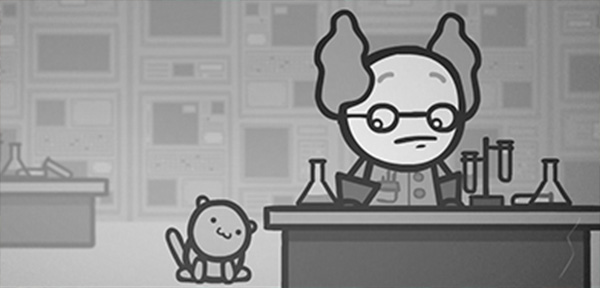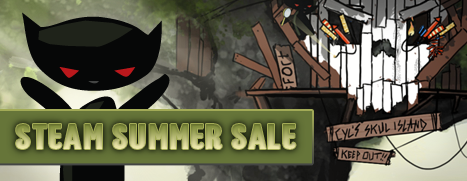
Boys in their bedrooms, drop-out dreamers, shut-in gore fetishists - if ever a film were to quash the red-top stereotypes of game developers than this would surely be it. Indie Game: The Movie follows four of the most thoughtful, hard-working and sensitive young fellows you could probably find in this business or any other, and is both a clarion call for the thrilling creative freedom of independent development and a grim warning of its near-lethal stakes.
The sheer graft underpinning the development of Braid, Fez or Super Meat Boy is writ large here, and accompanied by no small amount of heartache. Charting half a decade of development, the filmmakers cherry-pick from a catalogue of dramas, as the four developers struggle with the threat of financial oblivion, acrimonious legal wrangles, corrosive relationships with corporate gatekeepers, depression, insomnia, bad diets and eccentric facial hair.
Just how much they sacrifice to ship their game, and just how much they suffer both before and after, makes for moving viewing. The film deftly sketches their characters, too: a shot here of the meticulous Jon Blow, developer of Braid, sitting with stiff poise in a bare apartment; a shot there of Super Meat Boy’s Tommy Refenes drowsily pawing through a pile of grease-stained to-do lists. Refenes and his Team Meat partner, Edmund McMillen, are an endearingly asymmetrical duo - the tattooed, moustached McMillen is relaxed and warm, but touchingly vulnerable, while the skeletal Refenes is dryly cynical and seems permanently exhausted. You suspect his energy levels might improve if he didn’t survive on microwave burgers.
It’s Phil Fish, however, who offers the most wrenching story of all. While everyone seems willing to kill themselves to make their game, only in Fish’s case does this appear to be a literal threat. His game, Fez, has been in development for years by the film’s start, and has yet to ship when the titles roll. You get a glimpse of the reason for this in Fish’s painstaking pixel-perfect overhaul of the game’s textures - the third they have undergone. Like all of the film’s subjects, this man is a perfectionist, possibly to the point of self-annihilation.
Curiously, though the film expertly explains the passion it fails to describe the projects at which it is directed. Sure, we know Braid does something funny with time, and Fez goes all 3D - but how these things are manipulated to create elegant puzzles and transcendent epiphanies goes unrecorded. Blow even describes sinking into a depression when Braid’s rapturous reception failed to acknowledge his meta-narrative, but we never even understand how brilliant Braid’s time-contorting mechanics are, let alone what its meta-narrative entails. For the uninitiated, all three of the featured platformers might end up looking very similar, and though the film focuses on the human story behind these developments, the intelligence and intent of their construction surely deserves more space. As it is, without a ready explanation of the games’ ambition and worth, the film undersells the development as something akin to tilting at windmills.
There are some striking insights when the devs are allowed to discuss the design process: Blow describes how he structures his game as a dialogue with the player, so that the mechanics tumble out as minor revelations during play. Making an intimidating conundrum isn’t the interesting thing, he suggests, but bringing the player to a comprehension of it. Perhaps this answers Blow’s own puzzle: one reason for the lukewarm response to his narrative ambitions may be that they appeared opaque for opacity’s sake.
Some of the connections the film makes are a little crude and possibly overly-manipulative: McMillen talks about his game’s protagonist, Meat Boy, a character whose absence of skin leaves him vulnerable and in constant pain. He needs his girlfriend, who is made of plasters, to complete him. Cut to: interview with McMillen’s girlfriend. It’s a metaphor, see.
The film also sags in its last part, apparently not quite sure what to do with Super Meat Boy’s tremendous success, except repeat it several times. Oddly, it even revisits a long mission statement Blow gives at the film’s start. Maybe the filmmakers were hoping for material provided by the launch of Fez, but Phil Fish’s ever-retreating schedule evaded them. The lack of conclusion to his tale does leave something of a void, although it is heartening to know, as we now do, that he has probably since become rather rich.
Was it worth the effort? Refenes pays off the mortgage on his parents’ house, McMillen buys his girlfriend a hideous cat, Blow pours millions into his next development (The Witness), all because they ship their games and people love them. By the fortuitous choice of its subjects the movie escapes the difficulty of wrangling a heartwarming tale from bankruptcy and suicide, but it’s not a story without moments of bleakness. Indie Game: The Movie is an inspiring film, and even if it is rather vague about the specific appeal of the games themselves, it delicately articulates the passion, idiosyncrasies and brilliance of the developers as they pursue uncompromised creativity - and at what cost.

 Over-talented game dev Aubrey Hesselgren crafted an unofficial 3D mashup of Super Meat Boy and Super Mario Galaxy, apparently “for Tommy Refenes’ 30th Birthday”. You can see a video of it in action below. Hesselgren says on a Reddit thread devoted to the idea: “It’s just an experiment in adaptation. I kept hearing people write off 3D games with all the arguments about spatial perception, limited information etc, and wanted to try to tackle a few of their points, just for my own edification. I didn’t want to dismiss what they were saying, but I felt like I had to see for myself. I learnt a lot!” (more…)
Over-talented game dev Aubrey Hesselgren crafted an unofficial 3D mashup of Super Meat Boy and Super Mario Galaxy, apparently “for Tommy Refenes’ 30th Birthday”. You can see a video of it in action below. Hesselgren says on a Reddit thread devoted to the idea: “It’s just an experiment in adaptation. I kept hearing people write off 3D games with all the arguments about spatial perception, limited information etc, and wanted to try to tackle a few of their points, just for my own edification. I didn’t want to dismiss what they were saying, but I felt like I had to see for myself. I learnt a lot!” (more…)














